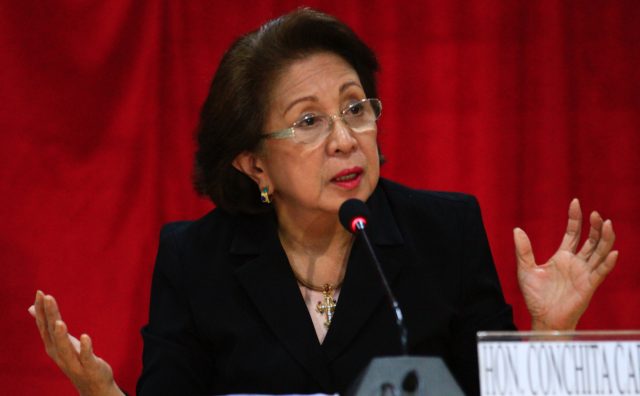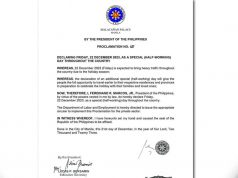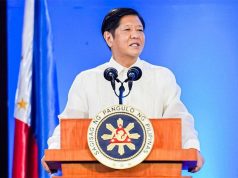MANILA, Philippines — In a post-truth world where “dubious, albeit popular, bloggers” dish out fake news, there is an urgent need for communications scholars and practitioners to craft strategies to deliver messages that reflect the truth and inspire hope, Ombudsman Conchita Carpio-Morales said.
Keynoting the 25th annual conference of the Asian Media Information and Communication Center at Miriam College in Quezon City on Wednesday, Morales said there is a need to rethink communication as the Philippines enters an era “where truth doesn’t really matter anymore.”
“It seems that a big part of the population would rather believe, like, and share fake news sites and echo the baseless assertions of dubious, albeit popular, bloggers,” she lamented, noting that social media users rarely check the authenticity of the information fed to them, unaware that many bloggers do not abide by the basic journalism tenets of accuracy and verification.
Morales acknowledged that, in these times, “objective facts are less influential in shaping public opinion than appeals to emotion and personal belief,” as rational discussions become irrelevant and Facebook and Twitter become “battlegrounds for propagandists, apologists, and more alarming, trolls and bots.”
“Worse, new communication tools are being used to stir up hate towards individuals and groups who are different, politically or culturally,” she observed, leaving little room for tolerance, with pride, prejudice, and bigotry prevailing.
“Does falsehood rather than truth resonate? Do people listen only to what they want to hear and believe?” Morales asked as she urged conference participants to help make their audiences media literate, enabling them to discern, distinguish, and detect false narratives, especially “systematic efforts to rewrite history.”
Morales admitted there is also a need for the Office of the Ombudsman, a constitutional body mandated to fight corruption, to craft messages that resonate with the public but that, with less than a year to go until her seven-year term ended, she has yet to discover the “magic formula” to make Filipinos, particularly the marginalized, more attentive to the evils of corruption.
She surmised that ordinary citizens may still not realize that they, not government, are the ones corrupt politicians rob.
“Ikaw po na street vendor, classroom teacher, estudyante, jeepney driver, o public health nurse ang pinagnanakawan, at hindi ang gobyerno, ang pinagnanakawan ng mga kurakot (It is you, the street vendor, the classroom teacher, the student, the jeepney driver, or the public health nurse who are being robbed; it is not the government that is being robbed by the corrupt),” Morales said.
However, she also acknowledged the possibility that the poor may be aware of the impact corruption has on them but are unable to protest because they are busy eking out a living for themselves and their families.
Others who are better off may “remain apathetic to corruption and human rights violations, untouched as they are comfortably situated anyway, until a next tragedy hits home, and a loved one becomes the victim,” she added, a situation she said reminded her of a passage from Dante Alighieri’s “The Inferno”: “The hottest places in hell are reserved for those who, in time of moral crisis, preserved their neutrality.”
She stressed that every peso stolen from the public coffers means less free medicine for indigent patients, fewer classrooms in remote villages, fewer farm-to-market roads, fewer food packs for victims of disaster.
“Engaging in grand corruption is rewarding oneself big time for depriving or denying the fundamental human rights of others,” Morales said as she admitted that human rights has become incomprehensible or distorted to many of those sworn to defend it.










